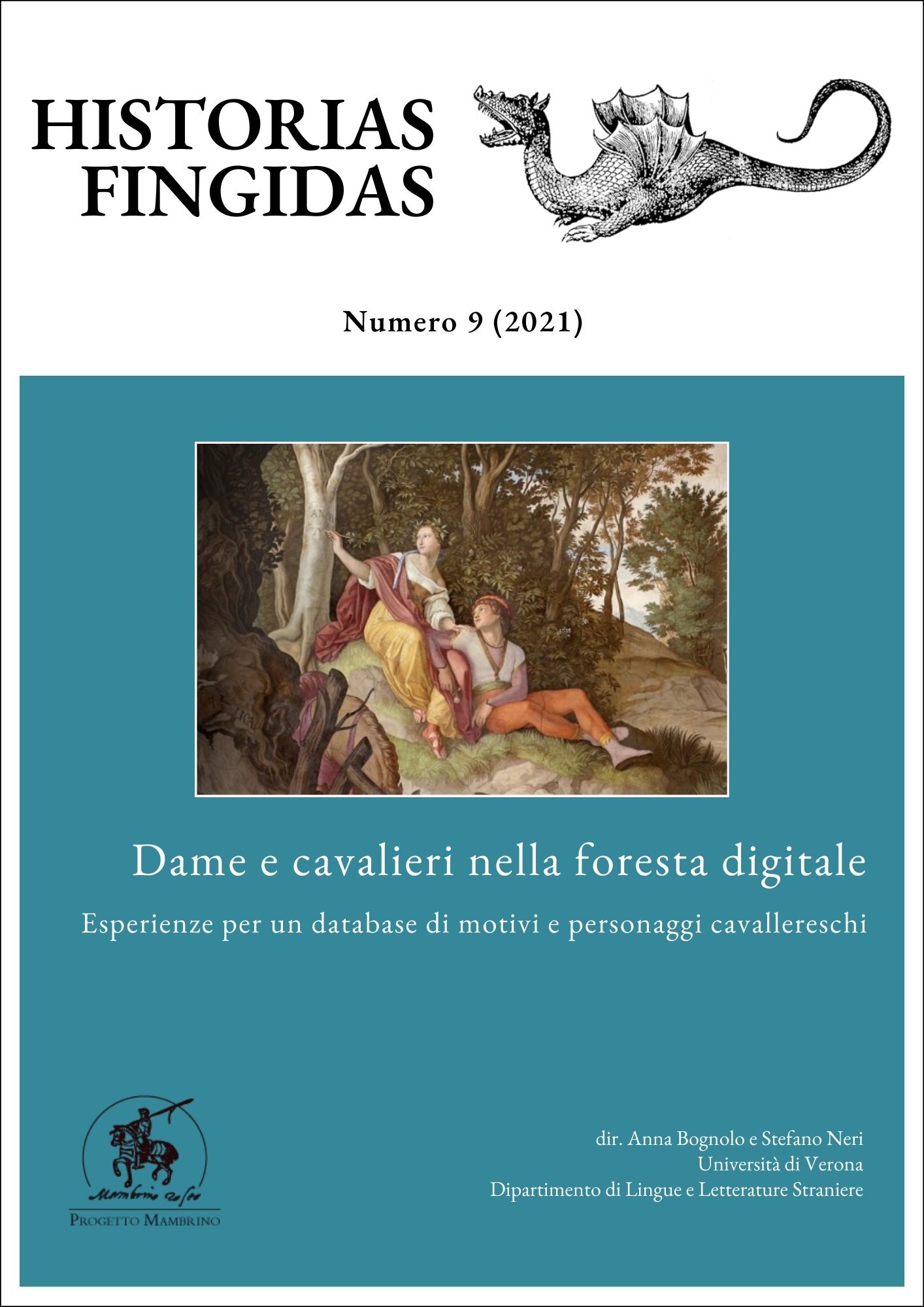The subtle thread between curiality, academy and feast in the Golden Age in the light of El palacio encantado by Pérez de Montalbán. With the books of chivalry and the mastery of Cervantes in the background
DOI:
https://doi.org/10.13136/2284-2667/1083Keywords:
Spanish books of chivalry, Golden Age literature and feast, academic prose, Feliciano de Silva, Pérez de MontalbánAbstract
Montalbán’s El palacio encantado, a short novel included in his work Para todos, includes narrative elements already practiced in romances of chivalry, especially in those written by Feliciano de Silva. Pageantry and court spectacles, academic sessions included, offer means to match verisimilitude and admiratio, a lesson well learned by Cervantes.
Downloads
Published
2021-12-23
Issue
Section
Monographic
License
Copyright (c) 2021 Alberto de Río Nogueras

This work is licensed under a Creative Commons Attribution-NonCommercial 4.0 International License.
Authors must attend to the following conditions:- Authors will mantain the copyright of their work and leave to the journal first publishing rights, simultaneously licensed by a Creative Common License - Attribution - No Commercial Use that permits other researchers to share the work indicating the intellectual property of the author and the first publishing in this journal not for commercial use.
- Authors can adhere to other license agreements not exclusive to the distribution of the published version of their work (for example: include it in an institutional archive or publish it in a monografic book), with the agreement of indicating that the first publishing belongs to this journal.
- Authors can disseminate their work (for example in institutional repositories or their personal website) before and during the submission procedure, as it can lead to advantageous exchanges and citations of the work (see also, The Effect of Open Access).

